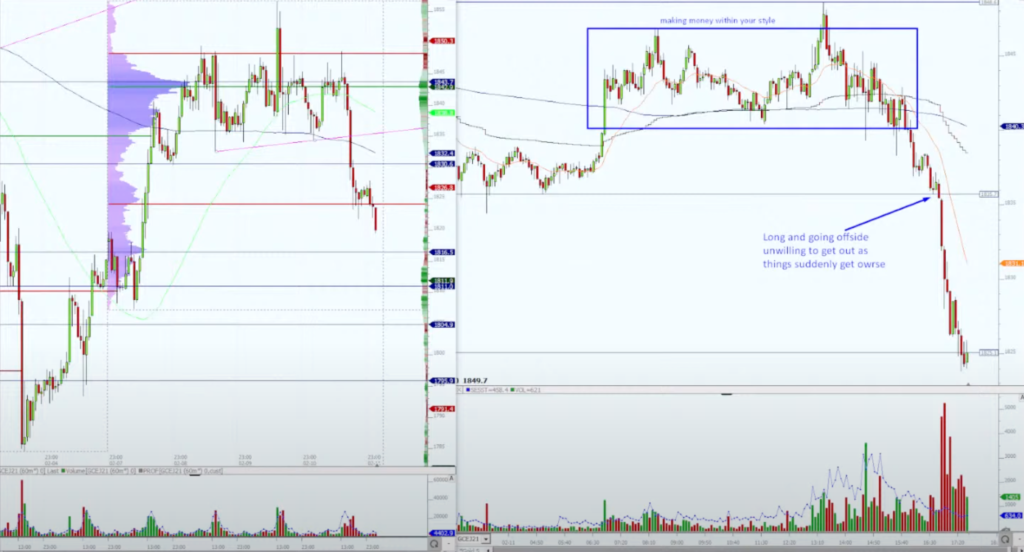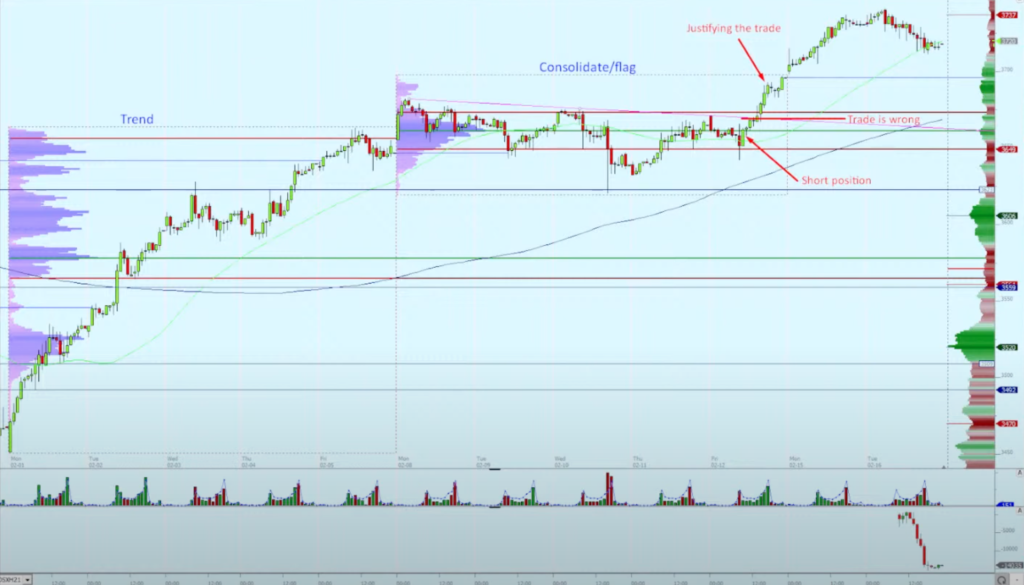Trading Your Ego Vs Your Plan Introduction
In this article, we will focus on the aspect of trading your ego vs your actual plan. Many times we are caught doing the “wrong thing” only after the damage has been done. Then we wonder why we did that, promise ourselves in our debrief we are not going to do that again and then go and repeat the same mistake over and over again wondering what is wrong with us. If this sounds familiar, trust us, this is how the majority of traders feel especially when they are still in their early stage of their trading career. Although there is no one recipe for how to overcome the ego easily, there are a couple of hints that can help you on your journey of becoming a consistently profitable trader dealing with your emotions. But first things first.
For more context around trade examples described below, watch the video.
Manifestation Of Ego In Trading
As most of you already know, by choosing trading as a career path you have put yourself on the journey to directly face your ego in its rawest form. Probably there is no other career out there that will leave your ego exposed as much as the trading. To truly understand what we are dealing with, we need to accept first, that our brain is not wired for trading by design. If we look deeply into a function of our prehistoric lizard brain and pass the two most important functions of this brain, survive and reproduce, we will find an additional program on top of it. Avoid discomfort. A program that all humans share. And trading is all about dealing with discomfort.
Discomfort can have many forms. From avoiding losses moving that stop-loss away bit by bit, not clicking the button when the opportunity screams at us, averaging down when being married to a trade, and so on. All these occasions have something in common: they are uncomfortable. And when we have to directly face the discomfort, our deeply established belief system kicks in, our ego fights back and damaging self-talk picks up. Now let’s have a look at a couple of those examples and what we can do about them.
Examples Of Ego Trades
Not Willing To Accept Loss Ego Trade

In the trade above, the trader was able to execute his trades with success (within the blue box). He is on a positive run and the previous conditions of trading suited his style. He was able to make money in that particular environment. Suddenly market conditions have changed, a trader has not recognized this change and got long (see blue arrow). This time outside of the conditions that previously made him money but given the previous good run, the trader does not want to give these profits away. This then manifests in the unwillingness to get out of the trade when things get worse. The ego kicks in. Avoid discomfort manifests itself in “not giving back the profits”. A typical recipe for disaster is if the trend sets up after our planned stop and we start to average down into a big drop. Not only we are creating a condition to give all our previous profits away and usually some more, but also we are signaling to our brain that averaging is acceptable behavior. In this trade, we got punished but there will be situations when we average and we actually get rewarded. This reward of unacceptable behavior is actually strengthening the synapses to do the same thing next time when a similar situation appears.
The Justification Ego Trade
In the example below, we have a similar example but a trigger might be different. In this case, the trader still believes that he/she might be still right with short position although all the market-generated information is screaming that the trade has been invalidated. Unlike in our first example, the discomfort our ego is trying to avoid in this case is not to be wrong on a trade and therefore does everything possible to justify staying in a trade “a bit longer”.

So why being “wrong” on a trade is such a problem? Why “losing after we won” is so hard? Why “accepting loss” is so difficult? It all has to do with our innate need to avoid discomfort. Ego then just needs to kicks in and execute your deep beliefs associated with avoiding discomfort. A belief that has been formed at some point in your past to deal with the discomfort. Everyone’s belief system is different, but they all have one in common: they are not rational and have impulsive characteristics. So where we can take it from here?
Edge And Belief System
Although overcoming our ego in trading is a long journey and probably never be 100% intact, we can start working on a process of how to be more in control in our trades. But all of that won’t be possible without understanding that we need to have an edge in the first place. Because without the edge (check-out how you can build your own edge with our help), no matter how bulletproof we are, we will be constantly improving strong emotional composure on a poor edge foundation. Taking it from there, I would also recommend reading how one of our Axia Junior traders is tackling the problem of being too attached to his trades dealing exactly with what we have just discussed.
If you liked this article, you might check these videos as well:
- Trading Psychology: How To Develop The Skill of Discipline | Axia Futures
- Trading Psychology: How To Stop Overtrading | Axia Futures
- How To Deal With Missed Trading Opportunities – Trading Psychology | Axia Futures
Thanks for reading and until next time, trade well.
JK




